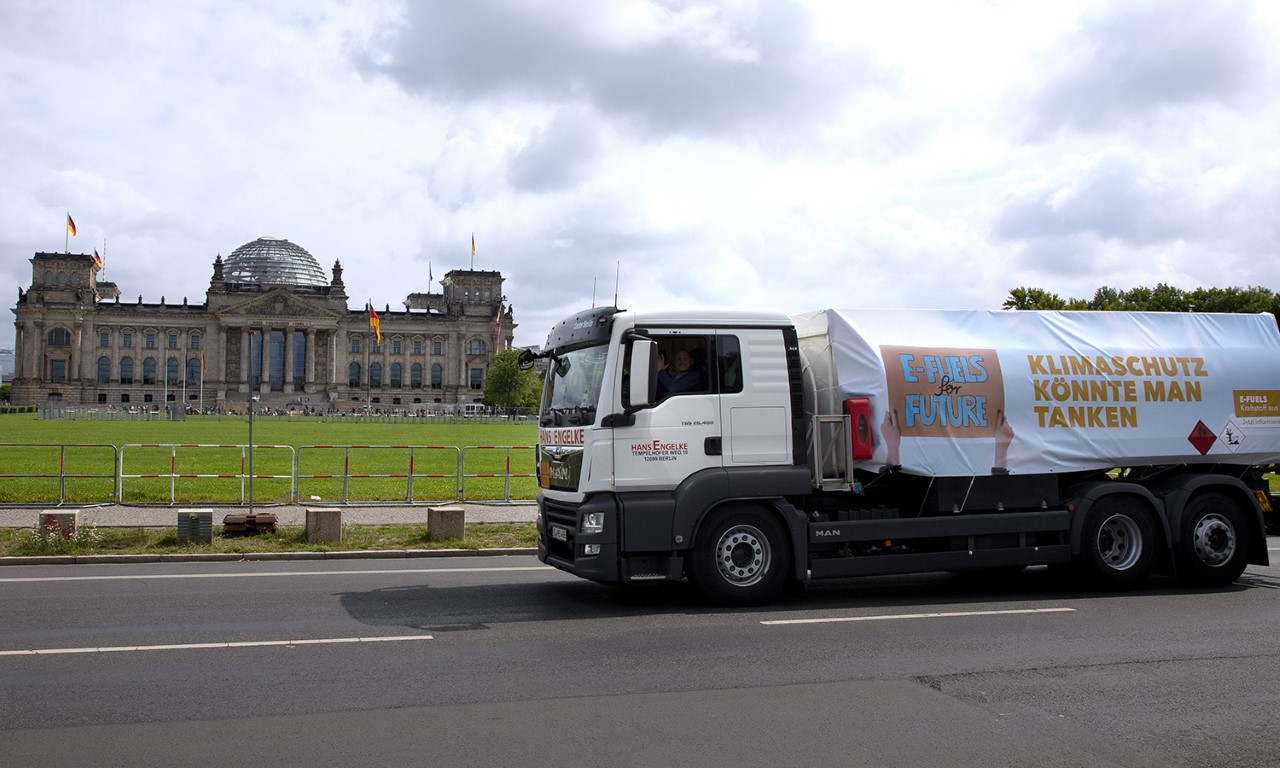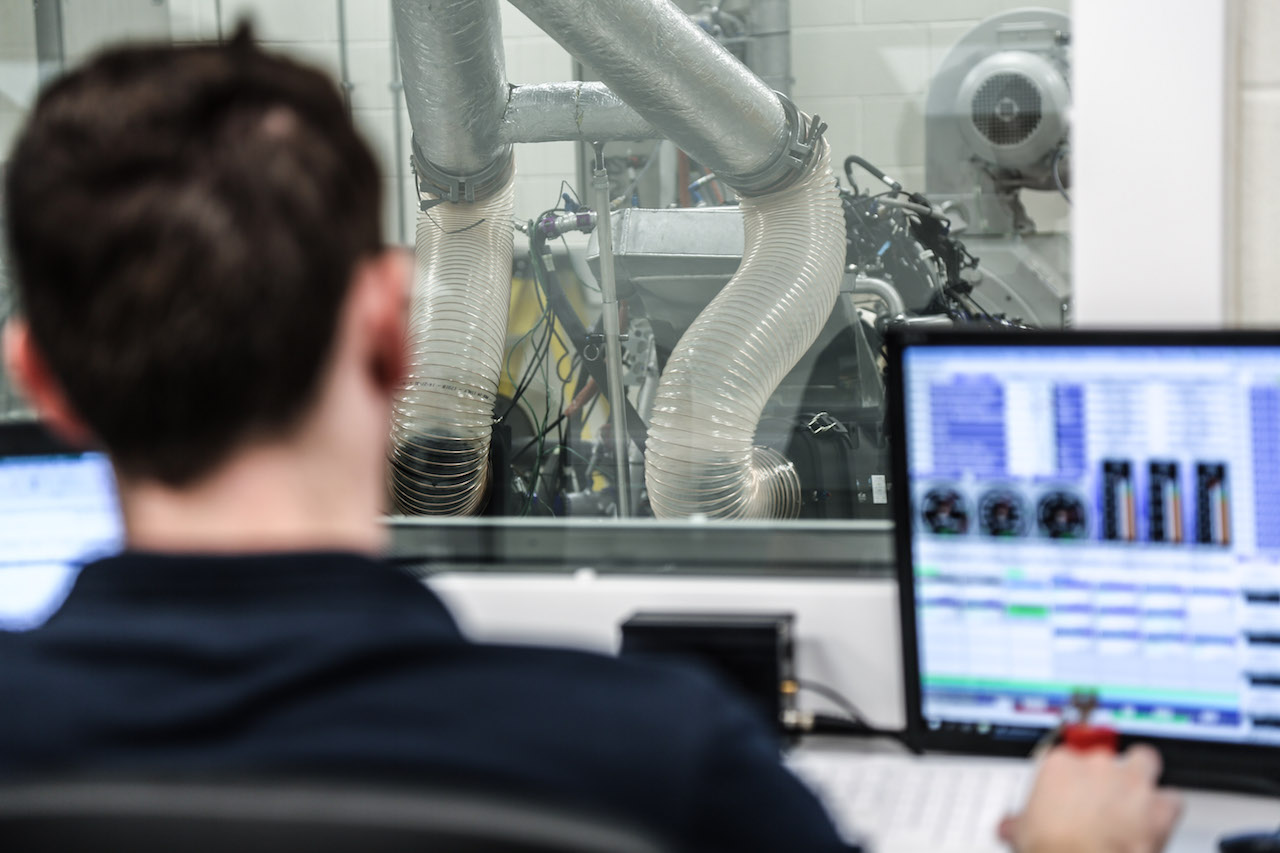
Kim Henson considers the implications – and alternative fuels for vehicles with internal combustion engines…
At Wheels-Alive we have always felt that the future of transport, in relation to environmental and global warming aspects, needs to be thought-about and planned very carefully and in a ‘big picture’ manner. This seldom happens and successive British governments of all political persuasions over the last few decades have rushed towards approaches that made headlines but the ‘jumping on the bandwagon’ has often proved to be misguided, and sometimes resulting in the opposite effect to that intended, in environmental terms.
It is evident that the incessant and hurried drive towards electric vehicles – to the exclusion of all other options or parallel approaches that could be adopted to work much more quickly towards ‘net zero’ – in Britain has not been fully considered in all aspects. Yes, it makes good headlines in terms of the country aiming for a carbon-neutral future, but many aspects have not yet been sorted out, and are unlikely to be within the next few years at least.
Among the difficulties are:
- Battery aspects.
Battery technology is improving all the time but scarce minerals are still required to make them, and they have a limited life, so disposal/recycling can prove costly and difficult. In addition, capacity to build the numbers of batteries required is a major challenge too!
- Power generation.
A vast increase in the amount of power produced will be required to run the numbers of electric vehicles being envisaged, putting strain on an already ‘borderline’ situation in terms of electricity supply. Trouble ahead in this respect is likely…
- Range anxiety.
Despite a multitude of technical advances, resulting in some cars having reasonably long ranges between recharging, driving a fully electric vehicle can still be worrying if long trips are undertaken. As has been proved so often, the necessity to recharge the vehicle’s battery pack part-way through a journey can be an unpredictable and difficult aspect of planning – especially as the charging point infrastructure is still haphazard and with scarce charging points often out of action. This can result in the inability to be able to complete a journey, and I have very nearly reached this situation myself…
It should also be noted that the quoted mileage range for a particular model can diminish markedly as the battery pack ages.
- Home charging?
If you live in a property that has no on-site parking available, you are not going to be able to recharge your vehicle from your domestic electricity supply, which means you will have to rely on charging points on the street or elsewhere, which may be expensive. As the numbers of electric vehicles rise inexorably without a corresponding increase in charging points, queues of vehicles waiting to be recharged are also possible.
- Overall environmental impact.
Of course, vehicles with zero tailpipe emissions are welcome in urban areas (especially). However the whole-life environmental impact of an electric vehicle has to be taken into account too, versus that of a conventional internal combustion engine model; the overall effect may well be negative, and yet often this aspect is not mentioned…
- Cost.
At the moment, and with few exceptions, buying an all-electric (‘battery electric’) car is still very much an expensive proposition, and out of the question for people on low incomes. This has not been helped by a series of ‘mixed messages’ from the government, not least with initial subsidies against list prices being cut, thus making the vehicles more expensive to buyers. Although, with regard to the vehicles themselves, relative prices may come down in time as economies of scale apply with numbers of electric cars increasing, for now, in almost all cases, buying one is still the preserve of the relatively well-off.
One can’t help wondering too, what will the government of the day do when income from petrol and diesel taxes reduces significantly? Will the electricity used to power our vehicles be taxed further too? Almost certainly!
Electric cars certainly have their place in the fight against harmful emissions… but so do advanced new fuels…
We are not, at all, against electric vehicles, these days they are technically very clever, and drive well. They clearly have a place in providing transport and in some cases helping to reduce running emissions that contribute to global warming. However, they are definitely not a panacea.
Hydrogen could play a crucial role as an environmentally-beneficial and efficient fuel for future vehicles, yet this is often overlooked by the powers-that-be.
In addition, it needs to be borne in mind that it is NOT the type of engine that produces harmful emissions, but the type of fuel. There is much work going on around the world (and notably in Germany) to develop bio-derived synthetic fuels and efuels that combine hydrogen with CO2 that is extracted from the atmosphere. (By means of electrolysis methods, the hydrogen is produced using sustainably-generated electricity – notably from solar and wind power, and water). The resulting carbon-neutral liquid fuels can be used to run internal combustion engines in a wide range of vehicles. Such fuels have the advantage that they can be stored and delivered using the same technologies and storage and delivery infrastructures, also the same staff, that are already in place. This is especially relevant for places around the globe (including parts of Africa and some southern European countries) where electric vehicle infrastructure is not even on the distant horizon…
Efuels could help move transport – including cars, commercial vehicles, aircraft and ships; all can run on it using existing propulsion motors – more rapidly towards a carbon-neutral future. They enable existing vehicles to operate in an environmentally-friendly carbon-neutral way, eliminating the need to run on fossil-based fuels.
Some major motor manufacturers, including Mazda and Porsche, are looking very carefully at these technologies, as they continue to develop efficient internal combustion engines that could be operated alongside electric models, into the future. Using a variety of approaches together could help to minimise or even reverse harmful emissions and climate change.
There are many other advances being worked on in terms of ‘clean’ fuel development too. For example, Crown Oil sells recently-developed very low emission Hydrotreated Vegetable Oil (HVO) fuel, said to reduce harmful greenhouse gas emissions by up to 90 per cent and thus helping towards the UK’s net ‘zero target’ by 2050. It is claimed that the fuel, which can be used in diesel-powered vehicles and machinery, also significantly reduces emissions of nitrogen oxides (NOx), particulates and carbon monoxide.
The well-respected British motorsport specialist firm Prodrive, in conjunction with the UK-based Coryton Advanced Fuels, has developed a sustainable fuel, called Prodrive ECOpower, over the last eight months. The main ingredients are latest generation biofuel, made using agricultural waste, plus efuels created using carbon from the atmosphere. The resulting fuel was developed for motor sport applications, but Prodrive says that it can also be used as a direct replacement for unleaded petrol in road-going vehicles.

The new ECOpower fuel will be used by the Prodrive-operated Bahrain Raid Extreme (BRX) team in the Dakar Rally in January, in their Hunter T1+ four wheel drive rally car (using the same type of engine as previously run on normal petrol). The photo below shows this vehicle.
The new fuel is said to offer the same performance and range as fossil-based unleaded petrol, while reducing greenhouse gas emissions by 80 per cent.
A result of the joint development work is that Coryton (which has a long history of helping to develop bespoke fuels for the motor sport industry) has recently introduced ‘Sustain’, the firm’s new sustainable fuels product.

VERDICT
Carbon neutral fuel technologies deserve and need to be given their chance – and it is important that they are not sidelined by possible misinformation (of which there is plenty!) amidst a ‘headline-grabbing’ relentless drive towards electric-only vehicles…
It is also worth thinking ahead to contemplate what will happen when the ‘electric only’ phase comes to an end, maybe in a decade or two, when the next ‘big thing’ in vehicle propulsion comes along? Back to square one, no doubt, with all alternative bridges having been burnt…
To sum up, electric vehicles certainly have their place as the world struggles to reduce emissions and global warming, in order to survive. I have enjoyed test-driving some of them too. If you are keen on buying an all-electric vehicle, and are able to do so, that’s fine, go ahead and enjoy it.
Alternatively… For now many drivers feel that a self-charging hybrid vehicle is a better bet, at least as an interim step for the next few years, with no plugging-in required, no range anxiety and easier long journey planning.
Or… A plug-in hybrid vehicle can give very good emissions performance and overall fuel consumption, but in most cases ONLY if regularly/frequently plugged-in to recharge, to give optimum driving range on electric power. (They are designed to work best in this way, usually with a fairly limited range on all-electric power).
Meanwhile, as explained above, other fuel technologies are currently being developed, should be given their chance, and could be applied to help in the vital mission of achieving ‘net zero’ and helping to save our planet. Is anybody listening?